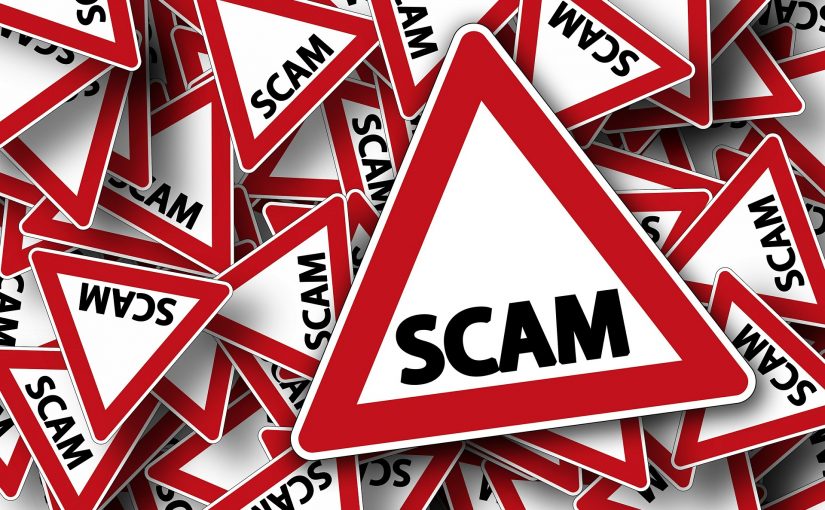The early summer and late spring are the peak seasons for real estate purchases and the number of 21st century real estate scams is higher during this season. Scams are no longer as simple as increasing the price of the property or charging a higher fee. Many scammers are hacking into professional accounts and websites of renowned real estate agents to execute high-end frauds.

Table of Contents
21st century real estate scam with a simple email
Scammers are proficient in hacking, and they can have good visibility of the status of your real estate purchase if they have access to your agent’s email. They choose deals that are closer to completion and send a message to the buyer asking for a wire transfer to complete the deal. Since the mail is from the agent’s mail ID and the details of the deal are accurate, most of the buyers do not cross verify with the agent before transferring the amount.
Real estate is one of the industries significantly hit by BEC (Business email compromise) scams. According to Timothy A. Scott, internet crimes attorney in San Diego “about 13,638 people were victims of wire fraud in the real estate and rental sector in 2020 – a 17% increase over 2019 – with losses of over $213 million.” As a result, real estate fraud were ranked No. 7 by out of over 30 types of fraud monitored and reported by the Internet Crime Complaint Center(IC3).
Remember that it is best to cross-verify with your agent regarding every payment and the recipient bank details. Once your amount reaches the scammer’s bank account, it is almost untraceable and non-retrievable.
Mortgage real estate loan scam
The 21st century real estate scams are not all about purchases. Some lenders pose as a reputed mortgage lender and offer professional advice about remortgaging the property. Every form and application the so-called lender shares will look genuine. But, when you complete the transaction, you would realize that the interest payment you agreed and the offered interest payment would be different. You will end up with a high-interest loan with no way of communicating with that agent.
In some cases, the agent would offer an interesting deal and would request a small amount for the processing fee, which is quite common in most financial institutes. He would request you to wire him the money, and after that, he will vanish.
Some frauds will bring their laptops to the meeting, requesting you to log into your bank account to check whether the loan got credited. At this situation, the loan processes would be at the final stage, and the homeowner would now know the agent in first-name-basis. Thus, he would not think twice before logging into the account through the agent’s laptop. Thereby, he shares bank details via the phishing page allowing the agent to withdraw every penny from the account.
Foreclosure relief scam
Many homeowners with drowning mortgage debt will be desperate for any form of help. Government and other organizations offer relief programs for such individuals. However, scammers get access to the database of such homeowners and contact them imitating a foreclosure relief program agent. Since the homeowner is desperate for help, he will be open for any form of settlement.
The agent would explain an elaborate process, which always involves the homeowner paying a small amount upfront while the company takes care of reducing the overall interest rate or even give a few months of breathing space with zero interest. The scammer’s website and mail ID would look genuine. The agent will also have an identity card with a business address on it. But, when you pay the upfront amount, you will never hear from him.
Title fraud
Another 21st century real estate scam is applying for a second mortgage loan on your property without your approval. Your information is open to scammers via multiple sources. There are phone scams, phishing attack, and even scammers call imitating job agencies to get information. Once all details are on the table, they will create fake identifications and forge documents of your property under their name. Unfortunately, notaries do not request original documents. Thus, the scammers can easily acquire a mortgage on your property and walk away with 80% of the property’s value.
In some cases, the scammer even tries to sell the property with these documents. Most of us share our detailed travel itinerary in our social media pages. Thus, it is easier for the scammer to know how long your home will be empty. All he has to do is find potential buyers and show around the house.
How to avoid 21st century real estate scams?
If you take time to verify simple details, you can save thousands or millions of dollars. Here are the top ways to avoid such scams.

- Do not believe in any agent who walks in with last-minute deal or offers that are custom-fit for your needs. Always cross-verify the company, policies, and check for online reviews.
- Your personal information, like your mortgage payment details, home address, middle name, and others are very important. Please do not share it with everyone you see. Do not share important information on social media pages.
- While purchasing insurance or a mortgage, do not assume that the agent knows everything. Cross verify every detail and if possible, call the company’s customer care number from the internet and check the rates.
- Please do not use any device that the agent brings with him. Please do not share your internet password with him too.
- Scammers need not aim at thousands of dollars. They can even try to suck a few hundred from each client. So, every small transaction matters.
- If you receive a mail from the buyer or agent, make sure to cross-verify it with the concerned person. Mails and SMS are not fail-proof ways of communication.
- If you get scammed, make sure to file a complaint. Please do not feel embarrassed about it or assume that the amount was too small for a complaint.
- If the client requests a wire transfer near a bank holiday, ask him to wait for the next working day. It is impossible to track or retrieve the amount during bank holidays.
In 2016, a client sent 200K dollars as a down payment to a bank account that was in a mail from his agent. When he realized it was a scam email, he contacted the bank and froze it account before the scammer could get the money. If you believe you are a victim, act immediately. You can get back your money if you could complain and take action immediately.





